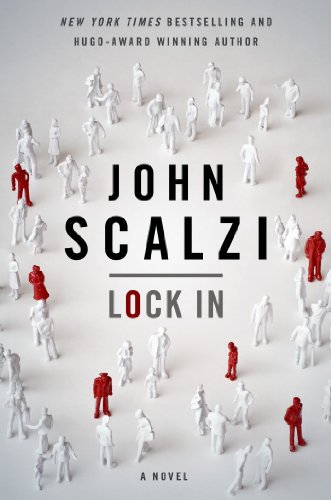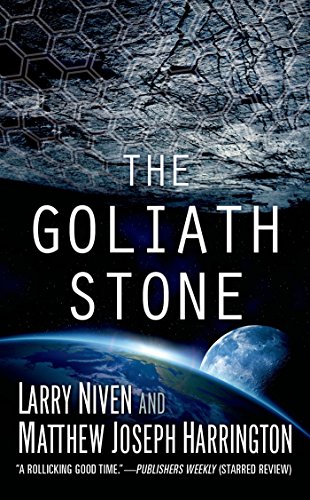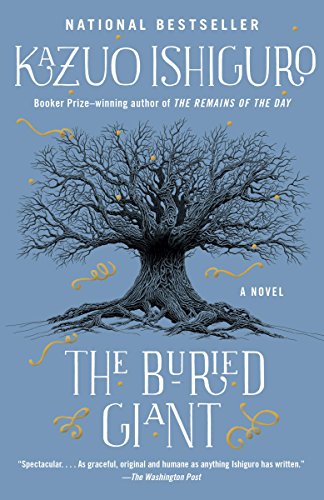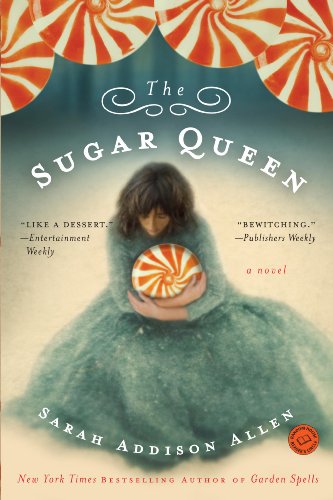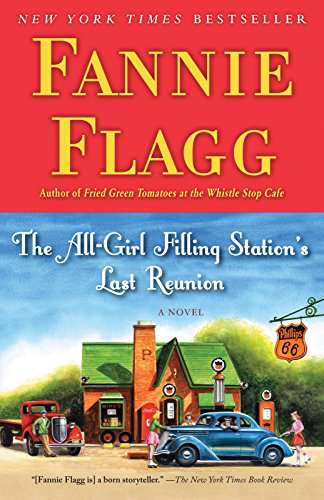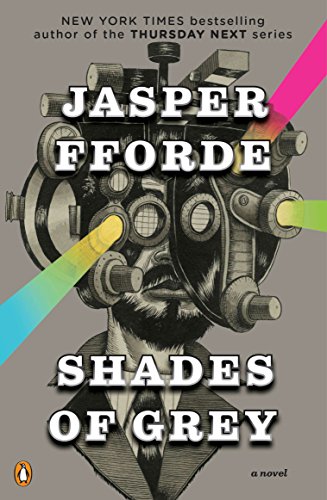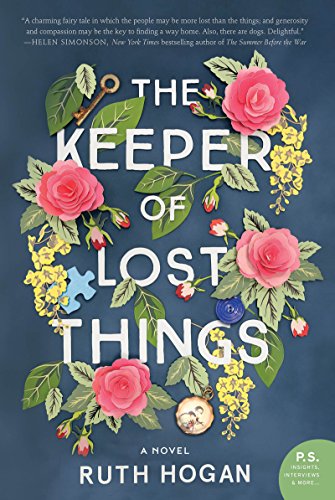
May and June 2019’s Reads
Because I got a little distracted in early June and completely forgot to do May's reads (ok, I procrastinated too long), you now have the pleasure of a fairly long list of the books I've read since May 1st.
First, a short story, "10 Reasons Aliens Just Can't Get Enough of This Small West Virginia Town" by Shae Davidson. In this cutesy SciFi story, Davidson builds a world changed greatly by the Visitation and the alien tourists who love Pine Grove, West Virginia.
I'm sure I read other short stories. I have no idea what they were, though. I know, I know. I'll do better next time and actually remember to jot them down here so I can share them with y'all.
Since discovering Garden Spells (see below) a few months ago, I've been trying to find more Magical Realism, especially of the softer, less-political kind.
Ruth Hogan's The Keeper of Lost Things fits that bill nicely. In it, a man who has been collecting lost objects since he lost the very thing that was most important to him leaves his entire estate to his housekeeper, who must then find the objects' original owners. There are stories within stories here and they are all quite charming and delightful, though sometimes also sad.
And if you like a little romance in your fiction, you'll be well-pleased with the three that are told in The Keeper of Lost Things. Not perfect, happy ever after romances, necessarily. Nonetheless, all three have satisfying endings.
I picked up Lock In by John Scalzi in the used book section of City Lights Bookstore in Sylva, NC, while searching for Magical Realism fiction. (Yes, I searched through their new books first.) I had previously read Old Man's War by Scalzi and enjoyed it, so I thought I'd give this one a shot.
Lock In is a near future Science Fiction detective story set after a highly contagious virus sweeps the world and literally locks certain survivors within their own bodies. It's billed as a Thriller, and in some ways it is, but I found the story to be a little too pat for my tastes.
Then again, it's hard not to see where a story's going when your primary function 24/7/365 is to pick stories apart.
Many readers were thrilled by the gendered issues subtext contained in Lock In, but that's easily ignored if you're looking for a decently woven tale set in a fascinating story world and don't care to delve any deeper. Even if you're not a huge fan of SciFi, you should enjoy this one, as it flows well and holds the reader's interest without effort.
The Goliath Stone by Larry Niven and Matthew Joseph Harrington is another near future SciFi novel, this one focused on nanotechnology.
After scientists lose track of a mission intended to use nanites to steer an asteroid toward Earth for commercial purposes, the use of nanites was banned. Twenty-five years later, an asteroid is discovered on course to rendezvous with Earth, and the nanites are believed to be responsible.
I enjoyed The Goliath Stone, especially the small, capitalist twist at the end. It was a fun, engaging read and it adroitly answered the question as to whether we should fear nanotechnology without getting preachy.
My second Magical Realism read during May and June was The Buried Giant by Kazuo Ishiguro, winner of the Nobel Prize in Literature and the Booker Prize.
The Buried Giant frustrated me on a number of levels, not least because I really wanted to enjoy it. Written in the bird's eye view of a traditional fairy tale, the story follows an elderly couple as they search for their estranged son. Along the way they encounter a number of strange creatures and characters through a surreal landscape often covered in memory-erasing mist.
So many aspects of The Buried Giant were fascinating, from the way the characters interacted to the underlying quasi-political themes pertaining to war and remembrance.
But the story just didn't flow well and I had a really hard time maintaining interest in it. The experience reminded me strongly of why I dislike literature (with a capital L, meaning the serious stuff discussed over a good wine by pseudo-intellectuals). Give it a try, especially if you're interested in Arthurian Fantasy, but don't say I didn't warn you.
Ok, now I have to admit my addiction: I re-read Garden Spells by Sarah Addison Allen. Yes, I know. I just read it a couple of months ago, but I really liked it, so. I read it again.
When I was finished, I moved to Allen's The Sugar Queen. Josey is the daughter of the richest man in town, now deceased, and lives with her overbearing mother. The relationship dynamic between the two is a bit like Snow White and her stepmother; the mother is passive-aggressive in her jealousy and keeps Josey tied to her side, something Josey lives with as her own personal repentance for being a difficult child.
The sweets hidden in Josey's closet are her one escape, only there's a problem with her closet: Della Lee Baker has moved into it and refuses to leave.
As with all of Allen's books (that I've read) family and romance are integral parts of the story, which is probably why most of her books are billed as Contemporary Romance. I prefer to call them Southern Magical Realism due to the quaint and intrinsically magical nature of the characters, but that's just me. Call them Women's Fiction or whatever you want, but don't skip Allen's books. They're much too fun to ignore.
I went looking for some humorous Southern Literature and landed on The All-Girl Filling Station's Last Reunion by Fannie Flagg.
Sookie Poole is certain of her place in life as her mother's caretaker and the heir to the Simmons legacy, her mother's family. One day, she receives a phone call that upends her carefully crafted life, causing her to question who and what she is.
Sookie's story is alternated with the stories of a Polish working class family, beginning when the father immigrates to the US after World War I. The focus is primarily his eldest daughter Fritzi, who has some grand adventures, sometimes with her sisters, sometimes without.
I loved the historical interludes far more than the contemporary ones. Sookie's part of the tale plods along, especially in the beginning, though it does get better by the end of the book.
The fascination for me was that Fritzi and her sisters learned to fly airplanes at a time when they were still new. The story follows them as they sign up to become WASPs and help with the war effort (World War II). And, of course, there's the time they were known as the girls in the All-Girl Filling Station.
Truthfully, those grand adventures overshadow poor Sookie's tale, unbalancing the story somewhat. Still, The All-Girl Filling Station's Last Reunion was an interesting read, and I laughed out loud a few times, especially when poor Sookie got in over her head with her mother.
A long time ago in a library far away, I discovered the Thursday Next Series by Jasper Fforde. The stories are mysteries set in a parallel universe in which Thursday, the protagonist, can enter book worlds and interact with the characters. They were such clever reads that when I was browsing my local library's shelves and stumbled upon Fforde's Shades of Grey, I decided on the spot, without even reading the inside cover blurb, that I needed to read it.
Eddie Russet lives in Chromatacia, an Earth of a few centuries from now wherein the residents are relegated to a well-defined place within a strict social heirarchy based on their ability to perceive colors.
Eddie starts out seemingly as a rule follower whose ambitions include improving queueing and moving up the color scale via marriage. His world quickly unravels, however, and as it does, Eddie discovers a subversive streak that could get him placed on the night train for re-education.
The world Fforde creates within the pages of Shades of Grey is highly complicated and intricate, something I deeply enjoyed, and the story moved along at a good pace. You know those stories that seem to be about one thing, but turn out to be about something else all together? Yeah, this is one of them. So it's clever, well-paced, complex...did I mention the humor?
There are rumors of sequels, and while those haven't materialized, I'm hoping that Fforde will get to additional stories in the Shades of Grey universe sooner rather than later.
For my business reading in May and June, I finished BookBub Ads Expert by David Gaughran and a second reading of Chris Fox's Write to Market: Deliver a Book that Sells.
Both books are exceptionally clearly written and I found them both to be highly useful. Gaughran's book helped me create my first somewhat successful BookBub Ad. I've never really done well with any of the CPC ads before, so that small success was an eye opener for me.
Fox's Write Faster, Write Smarter Series delivers tailor made content for authors looking to up their game. I always come away from reading his non-fiction with a better idea of how to handle the writing and publishing ends of my business.
My other non-fiction read was Influence: The Psychology of Persuasion by Robert B. Cialdini, one of the basic, recommended texts for anyone in the advertising business. I lacked one small section having it finished by the end of June, but I can already tell you that I highly recommend Influence as a must-read for everyone, even non-marketing folks.
That's it for May and June's reads! What books have occupied your time lately?
